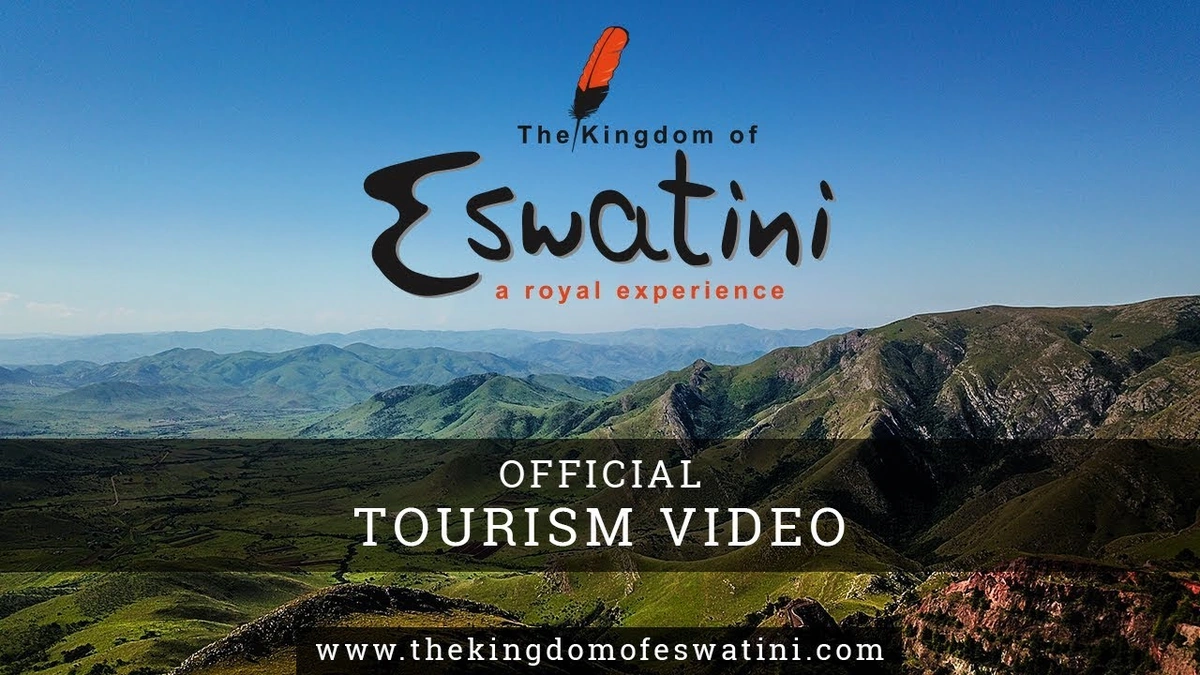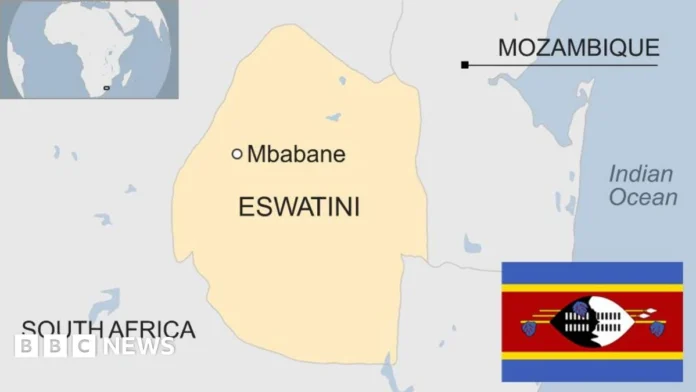Eswatini. It rolls off the tongue, doesn’t it? But here’s the thing: it’s far more than just a cool-sounding name or a geographical blip on the map. It represents a nation’s journey, its culture, and its place in a rapidly changing world. For many, especially those in the United States, Eswatini might seem distant, exotic even. But trust me, understanding this small kingdom can unlock some fascinating insights into global politics, cultural preservation, and the challenges faced by developing nations. So, let’s dive in, shall we?
The “Why” Behind the Name | Understanding the Shift

Let’s be honest, a country changing its name isn’t exactly everyday news. But the why behind it? That’s where it gets interesting. Formerly known as Swaziland, King Mswati III officially changed the name to the Kingdom of Eswatini in 2018 during the 50th anniversary of the nation’s independence. Now, I initially thought it was just a simple rebranding effort. But then I realized there was more to it. A primary reason was to drop the colonial baggage associated with the name Swaziland, a moniker given by the British during their rule. It was about asserting sovereignty and embracing a name that truly reflected the Swazi people and their identity. Think of it as a declaration: “We are Eswatini, and this is who we are.” What fascinates me is the potential ripple effect. Will other nations with colonial names follow suit? Only time will tell. You can find more on the history of colonialism atWikipedia
Eswatini’s Culture | A Tapestry of Tradition and Modernity
Culture is where the real heartbeat of a nation resides, and Eswatini is no exception. It’s a country where tradition is fiercely protected, even as modernity makes its inevitable inroads. The annual Umhlanga Reed Dance, for instance, is a spectacular display of Swazi culture, with thousands of young women participating in a vibrant celebration of womanhood and tradition. It’s a powerful reminder of the importance of cultural preservation in a world increasingly homogenized by globalization.
And the thing is, it is not just performances; it is real life. Cultural identity shapes the daily lives of many Swazi people, from their clothing to their social interactions. While urban areas are starting to look more and more like any other city in the world, the traditional ways of life are a stubborn and beautiful reminder of a rich heritage.
The Economic Landscape | Challenges and Opportunities
Eswatini faces significant economic challenges, including high rates of poverty and unemployment. A common mistake I see people make when looking at developing economies is assuming they are all the same. Eswatini, while small, has unique complexities. Its economy is heavily reliant on agriculture and manufacturing, with sugar being a major export. However, it’s also actively seeking to diversify its economy and attract foreign investment. And that is not always easy. It requires a commitment to political stability, good governance, and creating an environment conducive to business. One important thing is the country’s location; being landlocked between South Africa and Mozambique presents both opportunities and challenges for trade and development. See this guide to connections .
Navigating the Political Waters | Stability and Change
Eswatini’s political system is a unique blend of traditional monarchy and modern governance. King Mswati III is one of the world’s few remaining absolute monarchs, a fact that often draws international scrutiny. The country has faced calls for greater democratization and political reforms. I initially thought this was straightforward, but then I realized that change is never easy, especially when it involves deeply ingrained traditions and power structures. The challenge is finding a balance between preserving cultural heritage and embracing modern democratic principles. The nation’s political stability is intertwined with economic development, and how it navigates these complex issues will shape its future trajectory. A similar examination of admit cards is also available here .
Eswatini and the World | A Global Perspective
So, where does Eswatini fit into the larger global picture? Despite its small size, Eswatini plays an active role in regional and international affairs. It is a member of the United Nations, the African Union, and the Southern African Development Community (SADC). Its participation in these organizations allows it to advocate for its interests, collaborate with other nations, and address shared challenges. What fascinates me is how smaller nations like Eswatini can leverage their diplomatic presence to punch above their weight on the global stage. It requires strategic alliances, effective communication, and a clear understanding of its priorities. Eswatini relations with other countries are important to their national interests.
FAQ | Your Burning Questions About Eswatini Answered
Frequently Asked Questions
What’s the deal with the name change?
It’s about shedding the colonial past and embracing a name that reflects Swazi identity.
Is Eswatini a safe place to visit?
Generally, yes. But like anywhere, be aware of your surroundings and take precautions against petty crime.
What’s the currency in Eswatini?
The Lilangeni (SZL). It’s pegged to the South African Rand.
What are some popular tourist attractions?
Hlane Royal National Park, Mlilwane Wildlife Sanctuary, and the Umhlanga Reed Dance are highlights.
What is Eswatini known for?
Its unique blend of cultural tradition and the fact that it’s one of the last remaining absolute monarchies.
Why should I care about Eswatini?
Understanding Eswatini provides insights into cultural preservation, economic development, and global politics.
Eswatini Today offers more than just a geographical location. It is a lesson. A lesson in resilience, in the importance of identity, and in the complex interplay of tradition and modernity. By paying attention to these stories, we broaden our understanding of the world and our place in it.

